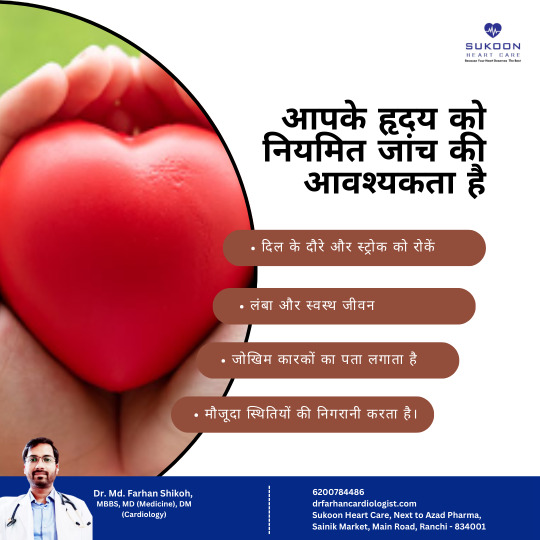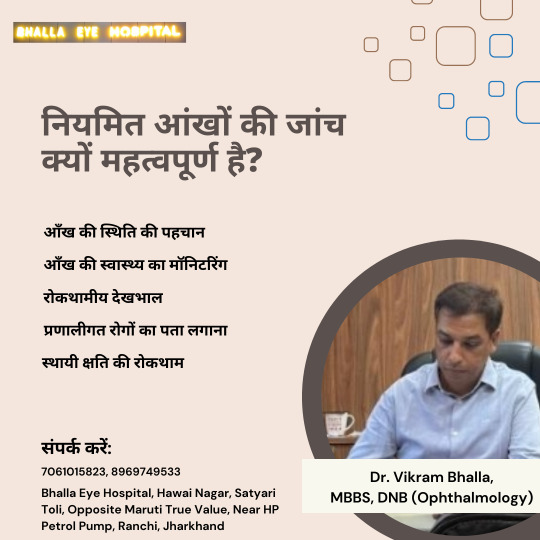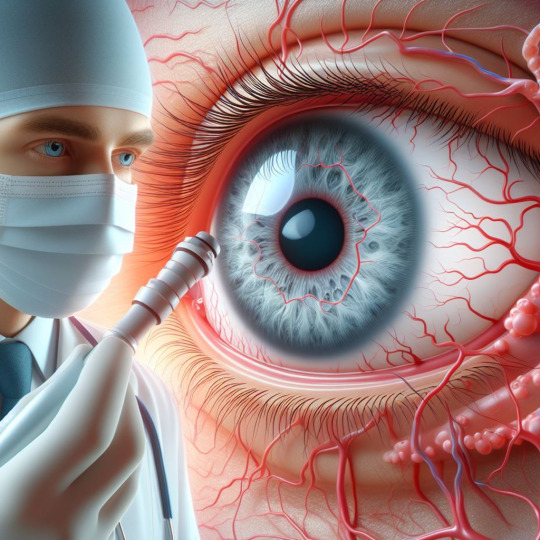#RegularCheckup
Explore tagged Tumblr posts
Text

👶✨ Regular Pregnancy Checkups: A Step Toward a Healthy Journey ✨👩⚕️
Pregnancy is a beautiful journey — and regular checkups are your safety net! 💕 From monitoring your baby’s growth to keeping an eye on your own health, these visits ensure both you and your little one are on the right track.
Don’t skip those appointments — they’re moments of care, comfort, and connection. 💖 Your health. Your baby’s future. One checkup at a time. 🩺🤰
#PregnancyCare#RegularCheckup#PrenatalCare#HealthyPregnancy#MomToBe#PregnancyJourney#BabyOnBoard#MotherhoodMatters#PregnancyWellness#ExpectingMom
0 notes
Text
Take Care of Yourself with a Regular General Checkup at Oran Park Medical Centre! 🌿
Your health is your greatest asset. At Oran Park Medical Centre, we want to help you take care of it by providing a thorough General Health Checkup! 💙
Having a regular checkup allows for many health issues to be detected and prevented earlier. Our GP's have many years of experience performing thorough health assessments. Assessments can include, but are not limited to blood pressure, cholesterol levels, blood sugar testing, and smoking status — all individualized to suit your health needs.
Whether it is to assess a chronic health issue; to assess your general health and wellbeing; or to stay proactive, our team is dedicated to keeping you informed and empowered throughout your health journey.💡
📍 Oran Park Medical Centre is located at Shop 12N, Oran Park Podium, and we are your local, trusted clinic for all your primary health care needs.
Contact us to book your appointment today and stay ahead in becoming a healthier you!
📞 02 4488 1080

#OranParkMedical#GeneralCheckup#HealthIsImportant#PreventativeCare#GPClinic#OranParkGP#HealthyLifestyle#StayHealthy#RegularCheckup#CodingBitDevelopment
0 notes
Text

High BP – The Silent Killer! You might feel fine, but your heart, brain, and kidneys could be at risk. Don’t wait for symptoms — get your BP checked today and take control of your health! Your health is your real wealth. Call us now and book your appointment!
#HighBP#SilentKiller#HeartHealth#BloodPressureAwareness#PreventiveCare#HealthyHeart#HypertensionAwareness#KnowYourNumbers#StayHealthy#RegularCheckup#HeartMatters#DoctorAdvice#HealthyLifestyle#BPCheck#BookYourAppointment#ShreeClinic#CardioCare#TakeChargeOfYourHealth
0 notes
Text
हर उम्र में आंखों का टेस्ट जरूरी है! लेकिन कब और किसे करवाना चाहिए? जानें यहां
#EyeTest#AankhonKaDhyan#VisionCheckup#HealthyEyes#EyeCareTips#DrishtiTest#AankhonKaTaste#HealthTips#RegularCheckup
0 notes
Text

#DentalCheckup#OralHealth#HealthyTeeth#SmileBright#PreventiveCare#GumHealth#CavityPrevention#DentalHygiene#FreshBreath#HealthySmile#DentistVisit#TeethCare#OralCare#RegularCheckup#DentalCare
0 notes
Text
👨⚕️नियमित हृदय जांच: स्वस्थ ज��वन के लिए आवश्यक

अपने हृदय के स्वास्थ्य को बनाए रखने के लिए नियमित हृदय जांच बहुत ज़रूरी है। यहाँ बताया गया है कि क्यों:
हार्ट अटैक और स्ट्रोक को रोकें: नियमित जांच से उन स्थितियों का पता लगाने और उन्हें प्रबंधित करने में मदद मिल सकती है जो हार्ट अटैक और स्ट्रोक का कारण बन सकती हैं। एक लंबा और स्वस्थ जीवन: अपने दिल की जांच करते रहने से यह सुनिश्चित होता है कि आप अपने प्रियजनों के साथ एक लंबा, स्वस्थ जीवन जी सकें। जोखिम कारकों का पता लगाना: उच्च रक्तचाप, कोलेस्ट्रॉल और मधुमेह जैसे जोखिम कारकों का समय पर पता लगाने से गंभीर हृदय स्थितियों को रोकने में मदद मिल सकती है। मौजूदा स्थितियों की निगरानी करना: मौजूदा हृदय स्थितियों वाले लोगों के लिए, नियमित निगरानी जटिलताओं को प्रबंधित करने और रोकने में मदद कर सकती है।
विशेषज्ञ परामर्श के लिए, Dr. Md. Farhan Shikoh, MBBS, MD (Medicine), DM (Cardiology) से सुकून हार्ट केयर, सैनिक मार्केट, मेन रोड, रांची, झारखंड: 834001 पर मिलें। 6200784486 पर कॉल करें या drfarhancardiologist.com पर जाएँ।
Dr. Md. Farhan Shikoh MBBS, MD (Medicine), DM (Cardiology) Sukoon Heart Care Sainik Market, Main Road, Ranchi, Jharkhand: 834001 Mob: 6200784486
#HeartHealth#Cardiology#HeartCheckup#PreventHeartAttack#StrokePrevention#HealthyHeart#HeartRiskFactors#HeartMonitoring#HeartCare#DrFarhanShikoh#Cardiologist#HeartDiseasePrevention#HeartWellness#HeartDoctor#RegularCheckup#HeartConditions#HeartScreening#SukoonHeartCare#HeartSpecialist#HeartAwareness#ranchi#heartdoctorranchi
0 notes
Text
👁️ नियमित नेत्र जांच का महत्व 👁️

नियमित नेत्र जांच अच्छी दृष्टि और सामान्य नेत्र स्वास्थ्य के लिए महत्वपूर्ण है। Dr. Vikram Bhalla, MBBS, DNB (Ophthalmology), भल्ला नेत्र अस्पताल, रांची, झारखंड के मुताबिक, ये जांच सिर्फ आपके चश्मों का अपडेट करने से आगे बढ़ती है।
ये आपके नेत्रों में ग्लूकोमा, कैटरैक्ट और मैक्यूलर डिजेनरेशन जैसी नेत्र रोगों के संकेतों को पहचानने में मदद करती है, जो पहले दिखाई नहीं देते। समय रहते इस्तेमाल से बेहतर प्रबंधन किया जा सकता है।
इसके अलावा, नेत्र जांच से डायबिटीज और उच्च रक्तचाप जैसी सामान्य स्वास्थ्य समस्याओं का पता चल सकता है, क्योंकि आंतरिक स्वास्थ्य के बारे में नेत्र समस्याएं दिखाती हैं।
व्यक्तिगत नेत्र देखभाल और व्यापक जांच के लिए डॉ। विक्रम भल्ला के पास जाएँ, भल्ला नेत्र अस्पताल, हवाई नगर, सत्यरी टोली, मारूति ट्रू वैल्यू के सामने, एचपी पेट्रोल पंप के पास, रांची, झारखंड। हमें 7061015823 या 8969749533 पर कॉल करके अपना समय बुक करें।
याद रखें, आपकी दृष्टि अनमोल है - इसे महत्वपूर्ण बनाएं!
#EyeHealth#VisionCare#EyeCheckUp#EyeCare#HealthyEyes#Optometry#Ophthalmology#EyeDoctor#PreventiveHealth#Ranchi#Jharkhand#BhallaEyeHospital#DrVikramBhalla#Healthcare#Wellness#RegularCheckUp
0 notes
Text
Hemorrhoids, also known as piles, are swollen veins in the lower anus and rectum. It can cause bloody stools or even infections. Discover advanced and effective treatment options for piles at Gunjan Hospital. Regain your comfort and confidence with our specialized care.
#gunjanhospitalcare#tipsforpiles#Causesforpiles#DontNeglectPiles#TreatOnTime#pīles#SeekSolution#SeekTreatment#GetPilesTreated#BookYourAppointment#RegularCheckup#NecessaryPrecautions#SafetyMeasures#PocketFriendly#AffordableTreatment
0 notes
Text
Eye Exam Frequency: How Often Do We Need Eye Exams?
Explore the significance of scheduling regular eye exams in Toronto for your overall health. From preventing vision impairment to detecting early signs of eye conditions, learn how optometrists at 360 Eyecare can play a vital role in preserving your vision.
#eyeexam#eyesight#visionhealth#eyehealth#comprehensiveeyecare#regularcheckup#eyeexaminations#visioncare#preventativehealth#comprehensiveexams#healthyeyes#eyecare#visioncorrection#optometrist#torontoeyecare#routineeyeexam#eyewellness
0 notes
Text
Protect Your Vision: Get to Understand and Manage Diabetic Eye Diseases

Those living with diabetes require careful attention to various aspects of their health, and eye health is one of them. Diabetes can contribute to the development of several eye diseases, and if left unchecked, it may even lead to blindness. Diabetic retinopathy is one of the primary concerns where the small blood vessels in the eyes get damaged due to diabetes.
Understanding Diabetic Eye Risks:
People living with diabetes are not only susceptible to diabetic retinopathy, but they are also at risk of developing other serious eye conditions. Untreated, these conditions can significantly impact vision and overall eye health.
Importance of Regular Check-ups:
Visiting an eye care specialist for regular eye check-ups is crucial for people living with diabetes. Your eye doctor can detect such eye conditions in their early stages and offer timely treatment before they escalate into more severe eye diseases. It is important to seek out a highly reputable eye specialist who has expertise in handling cases of diabetic eye problems.
What to Expect During Diagnostic Procedures:
When it comes to diagnostic procedures, your eye specialists often perform examinations that include dilating the eyes. This allows for detailed photographs of the retina, helping in the analysis of potential problems. Detecting issues at an early stage allows for effective intervention, reducing the risk of vision impairment or blindness.
Taking Precautions:
If you experience any vision-related problems, it is essential to seek prompt treatment to mitigate the risk of blindness. A balanced and controlled diet can positively impact overall health and contribute to maintaining eye health.
In Conclusion:
Adopting proactive measures, scheduling regular eye check-ups, and establishing a collaborative relationship with a reputable eye specialist are pivotal in safeguarding the vision of individuals managing diabetes. These precautions not only shield against diabetic eye diseases but also contribute significantly to overall well-being.
1 note
·
View note
Text
#ChildHealth#RegularCheckups#HealthyKids#PediatricCare#GrowthMatters#EarlyDetection#ParentTips#WellChildVisit#PreventiveCare#KidsWellness
1 note
·
View note
Text

The Power of Preventive health Check-ups!
Regular preventive health check-ups can help detect potential health issues before they become serious, ensuring timely intervention and a healthier future. 🩺✨ At Healix Hospitals, we offer comprehensive health screenings tailored to your needs, helping you stay proactive about your well-being.
✅ Early Diagnosis ✅ Risk Assessment ✅ Better Treatment Outcomes
Prioritize your health today! Book your preventive check-up now.
🌐 Learn more: www.healixhospitals.com 📞 Book your appointment now: 9100020030 📍 Find us: https://maps.app.goo.gl/p7BW8UJzPee5wJuW6
#PreventiveCare#HealthCheckup#EarlyDetection#BetterProtection#HealthAwareness#StayHealthy#HealthyLiving#ProactiveHealth#WellnessFirst#HealixHospitals#ComprehensiveCare#PreventiveHealth#TimelyDiagnosis#RiskAssessment#BetterOutcomes#HealthcareMatters#RegularCheckups#HealthScreening#YourHealthMatters#LiveHealthy#SelfCare#HealthTips#HealthyChoices
0 notes
Text
Stay ahead of health issues with preventive healthcare. Learn why regular checkups are essential for early detection, better treatment & overall well-being. Prioritize your health with Curelo!
#PreventiveHealthcare#RegularCheckups#Curelo#HealthAwareness#EarlyDetection#Wellness#HealthyLiving#MedicalCheckup#StayHealthy#HealthcareTips
0 notes
Text

अपनी किडनी का ख्याल रखें, ताकि वो हमेशा आपका ख्याल रखे! GS सुपर स्पेशलिटी हॉस्पिटल के यूरोलॉजी विभाग में, हम आपकी किडनी के स्वास्थ्य को सर्वोत्तम प्राथमिकता देते हैं। नियमित जांच और विशेषज्ञ देखभाल से हम सुनिश्चित करते हैं कि आपकी किडनी हमेशा स्वस्थ और सुरक्षित रहे।
For more information contact Mob: +91-6397995165 or +91-8272065695 Book your appointment today - https://gshospitals.in/appointment.php Address: - NH-9, Near Railway Station Pilkhuwa, Hapur (U.P)
#GSSuperSpecialityHospital#HealthyKidneys#UrologyCare#KidneyHealth#PreventionIsBetterThanCure#KidneyAwareness#UrologyExperts#StayHealthy#RegularCheckups#KidneyCare
0 notes
Text

कैंसर का जल्द पता लगाना जीवन बचा सकता है। लक्षण पहचानें, नियमित जांच कराएं, Address - Mawana Road Mussoorie , Meerut Gmail - [email protected] Contact Us - 1800-313-6064 ,7599221100 website : https://www.valentiscancerhospital.in/
#CancerAwareness#EarlyDetection#StayHealthy#CancerCare#HealthMatters#PreventCancer#StayInformed#RegularCheckups#FightCancer#HealthFirst
0 notes
Text
Preventive Medical Care: Early Detection Saves Lives
Discover the life-saving benefits of preventive care in Texas. Learn about early detection, wellness checkups, and screenings.
#PreventiveCare#EarlyDetection#HealthScreenings#HealthMaintenance#ChronicDiseasePrevention#WellnessCheckups#ProactiveHealth#HealthyLifestyle#PreventativeMedicine#EarlyIntervention#DiseasePrevention#HealthTips#SaveLives#HealthFirst#PreventiveHealthCare#RegularCheckups#PreventionMatters
0 notes